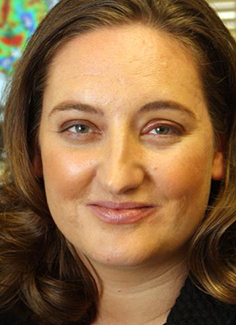Lifestyle
Copyright@ Australian Catholic University 1998-2026 | ABN 15 050 192 660 CRICOS registered provider: 00004G | PRV12008
Copyright@ Australian Catholic University 1998-2026 | ABN 15 050 192 660 CRICOS registered provider: 00004G | PRV12008

There might be no disease more dread-inducing than dementia: the umbrella term for conditions that affect memory and reason, the most common of which is Alzheimer’s disease.
Those who have witnessed Alzheimer’s in family members know how insidious a condition it is, ruthlessly raiding a person’s memories and robbing their ability to reason and carry out everyday tasks.
Under the surface, it slowly deteriorates brain cells through plaques and tangles, causing the cells to waste away and die.
Sadly, there hasn’t been much headway in developing effective treatments or a cure.
The history of research for Alzheimer’s drugs has been filled with setbacks, with almost all of them failing in clinical trials.
But while the disease isn’t yet curable, evidence is mounting that it may be preventable.
A study led by Professor Cassandra Szoeke, chief investigator for ACU’s Healthy Brain Initiative, found regular exercise in middle age was the best way to prevent cognitive decline in later years.
The paper, which used 20 years of data from the Women's Healthy Ageing Project and was published in the American Journal of Geriatric Psychiatry, tracked 387 Australian women from middle age to later life.
“We found that all of the known risk factors are important: cholesterol, blood pressure, smoking … all of them play a role,” says Professor Szoeke, a practicing neurologist.
“And we also found the most important thing people can do to prevent cognitive decline is physical activity, every day. It’s the number one protective factor against memory loss.”
The findings were significant. Experts suspect half of all dementia cases worldwide — affecting an estimated 50 million people — are likely due to modifiable behaviours like exercise.
Professor Szoeke’s study was among the first to investigate the effects these behaviours have on cognition over a long period of time. Other more recent studies have added weight to the theory that physical activity can prevent dementia’s withering effects. And in May 2019, the World Health Organisation’s new guidelines highlighted exercise and a healthy lifestyle as “important strategies to prevent dementia”.
In short, the scepticism towards the idea that lifestyle choices can reduce the risk of Alzheimer’s appears to be waning.

“Since dementia remains a condition without a cure, early detection, treatment, care and support are key,” says the WHO’s Bente Mikkelsen.
“Risk reduction strategies, such as pursuing a healthy lifestyle through regular exercise and not smoking, are also very important.”
One tends not to speak for very long about exercise without also mentioning its sidekick: diet.
So, can tweaking your eating also play a role in Alzheimer’s prevention?
The research is inconclusive, but promising.
“We can’t pretend diet isn’t important. It is,” Professor Szoeke says.
“We know for sure it plays a big role in overall health. There’s a lot of data showing that processed foods cause people to have a high risk of cancer, and we also know that diet choices are important for heart health and brain health.”
However, when it comes to Alzheimer’s and other dementias, there are gaps in our knowledge.
Because the rate of diagnosis increases dramatically after 65, most studies examining the link between diet and dementia have involved subjects over that age.
But we now know that the biological changes in the brain linked to the conditions occur three decades before any obvious symptoms appear.
“It might not be what you consider a great headline, but one of the biggest advances we've made in Alzheimer’s research in the last five years is this discovery: that the disease takes 30 years to develop,” says Professor Szoeke, who co-authored a 2013 study showing that Alzheimer’s develops slowly over several decades.
“Up until recently, almost all the studies we did were in people aged over 70, and they were short-term studies. But if you watch someone for only five years, you don’t actually know that the factors you’re looking at are relevant to the development of the disease.
“So we need to look at younger subjects and study them over a period of 20 or 30 years.”
The scarcity of such research makes it difficult to say anything conclusive about Alzheimer’s prevention.
But Professor Szoeke and her colleagues are on a mission to change that.
In 2018, ACU created the Healthy Brain Initiative (HBI), a study that all adult Australians can join, aimed at addressing key gaps in our understanding of how modifiable risk factors affect our brain health.
In the same year, ACU PhD candidate and HBI researcher Edward Hill drew on 20 years of data to investigate the connection between nutrition and the hallmark Alzheimer’s protein beta-amyloid in women — the first known study to do so.
The research found that women who ate a diet high in unhealthy junk food had more beta-amyloid in their brain than those on a range of other diets.
This HBI collaboration, which was published in Science Direct and included researchers from the University of South Australia and the University of Melbourne, investigated the diets of 115 women and found four distinct dietary patterns: high-fat, Mediterranean, junk food and low-fat.
Those who adhered to the Mediterranean diet displayed significantly higher cognitive scores than the other dietary groups.
“This study shows that changing the way we eat can delay ageing in our brain and reduce the risk of dementia,” Mr Hill says.
Even those who are genetically predisposed to Alzheimer’s could potentially change the course of their genes, he adds, by adopting a healthier lifestyle to prevent or delay the disease.
In Mr Hill’s words: “With no drug treatment for Alzheimer’s disease currently available, research is shifting towards modifiable lifestyle risk factors such as diet.”
Despite decades of Alzheimer’s research, the science is not yet settled on the underlying cause of the disease’s destruction and decay.
Scientists have, however, identified several possible culprits.
The prevailing view is that it’s caused primarily by the abnormal build-up of the protein beta-amyloid in the brain.
Drugs developed to treat Alzheimer’s have therefore sought to obstruct that protein.
But the repeated failure of those drugs has led some researchers to suggest that the so-called “beta amyloid hypothesis” may be incorrect.
“This is an area of huge controversy,” Professor Szoeke says.
“There are people who believe that the amyloid protein causes dementia. And there are people who believe that it is simply sitting there in people who have dementia.”

So, where does Professor Szoeke sit?
“I absolutely believe the amyloid protein is sitting there when you have dementia,” she says.
“When you look at all those failed clinical trials, the only successes have been with symptomatic therapies, not what you’re asking about, which is a cure.
“However, almost all of those drugs were targeting amyloid. So whilst those numbers look really bad, and you might think, ‘Oh, we've tried so many, nothing’s working’, there’s always a number of things you need to trial before you get one successful medication, so in fact there’s a lot of hope.”
Crucially, most treatments have only been trialled in patients older than 70. But a recent paper by Professor Szoeke published in The Lancet Neurology shows that, in fact, our risk of getting dementia doubles every five years after we turn 50.
“The new knowledge that the disease develops 30 years before diagnosis means we should intervene earlier,” she adds. “Once brain cells are lost we cannot yet replace them.”
Professor Szoeke, a former leader of the CSIRO’s Preventative Health Flagship, believes recent advances suggest a shift in focus to modifiable risk factors might be prudent.
“We can see there’s a number of factors at play and they’re all related to protecting brain health,” she says.
“We know our brain is really sensitive to having poor blood supply, and if you don’t exercise and you smoke, or if you don't look after your blood pressure and your cholesterol, then you increase your risk of dementia.”
Reducing the risks might therefore come down to a simple message: eat healthy food and move more.
“Physical activity is best thing we can do to help prevent the risk of Alzheimer’s,” Professor Szoeke says. “The more you do and the earlier you start doing it, the better.”
Professor Cassandra Szoeke is a chief investigator looking at cognition and vascular health for ACU’s Healthy Brain Initiative, a national research program aimed at addressing gaps in our understanding of how modifiable risk factors affect brain health.

On World Alzheimer’s Day, Pope Francis called for a greater focus on dementia. Click here to see the Pope’s talk.
Copyright@ Australian Catholic University 1998-2026 | ABN 15 050 192 660 CRICOS registered provider: 00004G | PRV12008